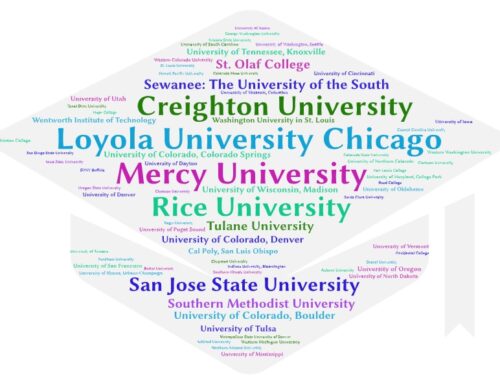If you’re a high school student, chances are you’ve received at least one letter or email inviting you to apply to a summer program on a college campus, also known as a pre-college program. You may have gotten the impression that you were among a select group of students to be invited to apply and/or that admission to the program is highly competitive. So you did some research and got excited about the program, but you might have been surprised or even shocked when you saw the price. Although there are less expensive options, many summer programs are several thousand dollars for just a week or two on a college campus.
You may be wondering, is this type of program worth it? Only you and your parents can determine the answer to that. I’ve had students do some of these programs, and overall they’ve enjoyed them and found them worthwhile. However, depending on your family’s financial situation, the cost may be far beyond your budget. For example, I found a six-day program that costs $2,700, a nine-day program that’s $3,800, and a two-week program that’s $6,200. While program fees typically include housing and meals, they do not include transportation to and from the college, so that’s an additional cost.
Most programs provide little to no financial assistance. Instead, in their marketing materials and on their websites, many pre-college programs encourage students to fundraise to cover the costs. A few years ago, a Washington Post article reported that a search for “pre-college” on GoFundMe turned up dozens of campaigns from high school students and their families, trying to raise money for such programs.
Some programs even go so far as to suggest specific ways that students might raise funds. For example, National Student Leadership Conference (NSLC) has a 16-page fundraising guide that includes a list of sample fundraising events, such as a bake sale. Even if you charged $3 per cookie (which seems overpriced to me), you’d have to make and sell 900 cookies to raise $2,700. Actually, you’d have to sell more in order to cover the cost of ingredients. Plus, consider how much time it would take you to make and sell that many cookies and what else you could be doing with that time.
Even if the cost isn’t a barrier for you and your family, you might be curious about whether participating in a summer program will improve your chances of being admitted to college, particularly to the college at which the program is held. The short answer is no, but let me explain.
First, as I said before, many of these programs are advertised in such a way as to make them seem exclusive, but that’s usually not the case. For example, one of my students received a letter from NSLC that said, “We are excited to an extend an invitation for you to represent your school at the 2022 National Student Leadership Conference (NSLC). Our programs this year will take place on the campuses of 14 of our nation’s top universities.”
It sounds as though this student was one of only a few from her high school to receive this letter, but in fact, NSLC sends thousands of invitations each year. Not only that, but anyone can apply, even if they weren’t invited.
Furthermore, admission to NSLC isn’t at all selective, and this is fairly obvious from the application. It asks for a student’s name and contact information, the name and location of their high school, and their GPA. Applicants aren’t required to send a transcript or recommendation letter(s), they don’t have to list any extracurricular activities, and there are no essays. Students also have to pay a deposit when they submit their application, although it will be refunded if they’re not admitted to the program.
NSLC is one of a number of companies that hosts summer programs on college campuses. This means that the programs are not offered by the colleges themselves and therefore, the colleges have nothing to do with the application or selection process. Even when a program is offered by a college, the undergraduate admissions office is unlikely to be involved. Additionally, getting into such a program at a highly selective college is generally much easier than gaining admission to the college itself.
With few exceptions, participating in a college’s summer program will not give you a leg up in terms of college admissions. The author of the aforementioned Washington Post article interviewed several former admissions officers who said that participating in a pre-college program does not improve a student’s chances of admission to that or any college.
So, should you “pay to play” in a pre-college program? Consider what the program offers, what you will gain from it, and if you can get a similar experience elsewhere for less money or even for free. For example, could you take a course at a local community college, volunteer, or do an internship? Getting a job is also a perfectly acceptable way to spend your summer. Not only will you not have to pay to do it, you’ll earn money and gain valuable skills in the process, as described in this blog post.






